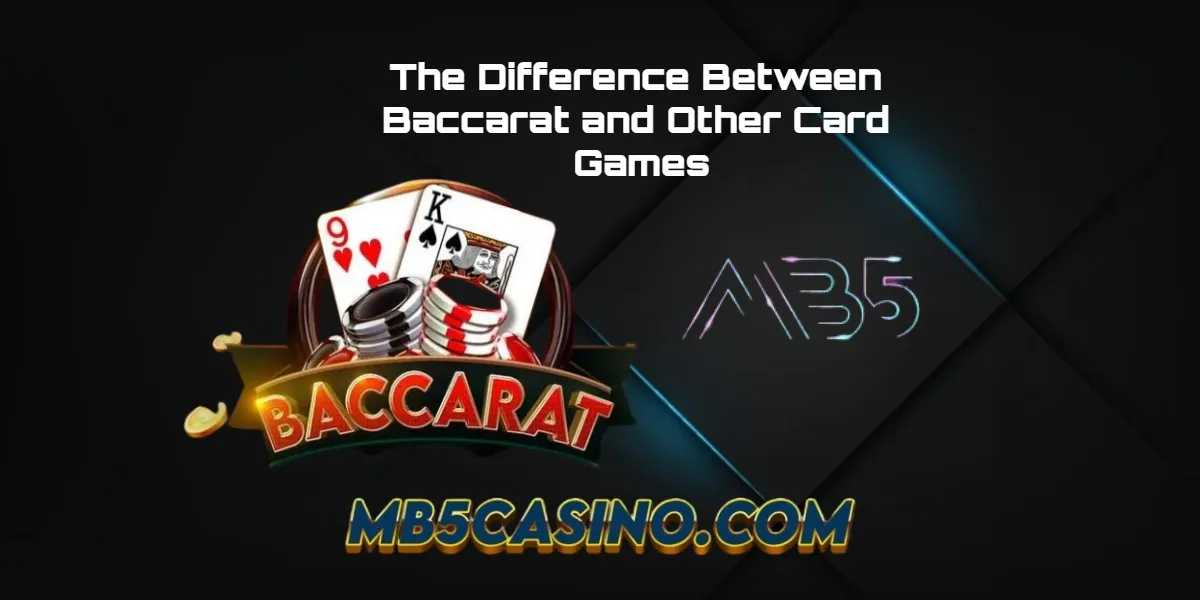The world of casino card games is a vibrant landscape, each game offering a unique experience defined by its rules, strategy, and pace. While games like blackjack and poker dominate pop culture, baccarat holds a special place, particularly in Asian markets, including Malaysia, for its elegant simplicity and fast-paced action. To truly appreciate baccarat, it’s essential to understand what sets it apart from its more famous counterparts. This comprehensive guide will explore the key differences, from gameplay mechanics to strategic depth, providing a clear comparison of baccarat vs blackjack and baccarat vs poker.
Baccarat: A Game of Pure Chance and Sophistication
At its core, baccarat is a game of pure chance. Unlike many other card games, a player's role is largely passive after placing a bet. The game is a comparison between two hands, the "Player" and the "Banker." The objective is to bet on which hand will have a total closest to nine. The hands are dealt according to a strict set of rules, known as the "tableau," which dictate whether a third card is drawn.
Card values in baccarat are unique:
- Aces are worth 1 point.
- Cards 2 through 9 are worth their face value.
- Tens and face cards (Jack, Queen, King) are worth 0 points.
- If a hand's total exceeds nine, only the second digit of the sum is considered. For example, a hand of 7 and 8 totals 15, but its baccarat value is 5.
The simplicity of baccarat is its greatest strength. There is no skill required beyond placing a wager on one of three outcomes: Player, Banker, or Tie. This makes it an incredibly accessible game for beginners, a stark contrast to the strategic complexities of games like blackjack and poker.
Baccarat vs. Blackjack: Strategy vs. Simplicity
The comparison of baccarat vs blackjack reveals a fundamental difference in player involvement and strategic depth.
Blackjack: A Game of Skill and Decisions
Blackjack, also known as 21, is a game where players compete directly against the dealer. The goal is to get a hand total as close to 21 as possible without going over. Unlike baccarat, players in blackjack make active decisions throughout each hand. They can "hit" (take another card), "stand" (keep their current hand), "double down" (double their bet and take one more card), or "split" (separate a pair into two new hands).
These decisions, guided by a system called "basic strategy," can significantly influence the outcome of the game. A skilled blackjack player can reduce the house edge to less than 1%, making it one of the most favorable games for the player in a casino. This element of control and the need for strategic thinking are what define blackjack.
Baccarat: A Game of Betting, Not Playing
In baccarat, once the bets are placed, the player has no further decisions to make. The dealer follows the fixed rules of the tableau to deal the cards and determine the winner. The game is a pure guessing game, a test of which side—the Player or the Banker—will win. This "hands-off" nature is what makes baccarat so appealing to players who prefer a fast, straightforward game with minimal mental effort. It's a game of rhythm and prediction, not strategy and skill.
House Edge and Odds
Another key difference lies in the house edge. The house edge in blackjack can be as low as 0.5% for a player using optimal basic strategy, a testament to its skill-based nature. In baccarat, the house edge is also very low for the main bets:
- Banker bet: approximately 1.06% (due to a 5% commission on winning bets).
- Player bet: approximately 1.24%.
While the house edge on the Tie bet is significantly higher (often over 14%), the core bets offer some of the best odds in the casino. This low house edge, combined with the game's simplicity, makes baccarat an attractive option for both high rollers and casual players.
Baccarat vs. Poker: Chance vs. Competition
The contrast between baccarat vs poker is even more pronounced. Poker is not a game played against the house; it is a game played against other players.
Poker: A Game of Skill, Psychology, and Probability
Poker, in its many forms (Texas Hold'em, Omaha, etc.), is a game of profound skill. Players compete to build the best hand and use betting strategies, bluffing, and an understanding of probability to win the pot. A successful poker player must be a master of psychology, reading opponents' tells, and making calculated decisions based on the cards they hold and the cards on the table. The outcome of a poker game is heavily dependent on a player's ability, not just the cards they are dealt. The house in poker typically takes a "rake" (a small commission) from each pot, but does not participate in the game itself.
Baccarat: The House-Banked Guessing Game
In baccarat, the "Banker" hand is a fixed entity, representing the house, and players do not compete against each other. The game is a solitary pursuit where each player makes their own bet on the outcome of the two hands. There is no bluffing, no reading opponents, and no complex strategic decisions. The only "competition" is the game's intrinsic odds. This makes baccarat a game of pure chance where every player has an equal footing, regardless of their experience or skill level.
Baccarat Game Types and Popularity in Malaysia
While the core rules of baccarat remain consistent, there are several baccarat game types that cater to different player preferences. The most common version found in online and land-based casinos in Malaysia is Punto Banco, which is the version described above where the rules are fixed and no player decisions are required.
Other variations include:
- Mini Baccarat: A smaller, faster version of Punto Banco, often found on tables with lower betting limits. The rules are identical, but the pace is quicker.
- Chemin de Fer: A more classic French version where the role of the banker rotates among the players. Players have the option to draw a third card, introducing a minor element of strategy.
- Baccarat Banque: Similar to Chemin de Fer, but the banker position is more permanent and is usually held by the player with the largest bet.
The simplicity and low house edge of baccarat, particularly Punto Banco, have made it one of the most popular card games Malaysia, both in brick-and-mortar casinos and on online platforms. Its appeal is rooted in the combination of a high-stakes feel and a game that anyone can pick up and play in minutes.
Conclusion
The difference between baccarat and other card games is a matter of control. While blackjack and poker are defined by a player's ability to make strategic decisions and influence the outcome of a hand, baccarat is a game of pure chance and prediction. In baccarat vs blackjack, you choose between a game of skill and a game of simplicity. In baccarat vs poker, you choose between a solitary guessing game against the house and a competitive contest against other players. For many, especially in Malaysia, the elegance, speed, and low house edge of baccarat make it the perfect choice for a thrilling, yet uncomplicated, casino experience.








































